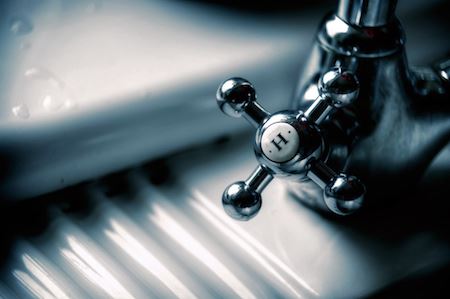Every household has a regular cleaning routine. You vacuum the floors. Wipe down the countertops. Scrub the tub.
You might even have a regular cleaning routine for your major appliances. Have you ever added white cleaning vinegar to your washing machine and ran a cycle to clean it? When this cycle is done, use a microfiber cloth to wipe down the drum. This simple routine can keep your washing machine running its best for years.

Your water heater needs a little TLC periodically to continue running its best. Water heaters provide you with enough hot water to do the things necessary to you: how showers, clean clothes, and hygienic dishes. If you’ve ever tried to operate without hot water, you know how difficult it can be.
If you want to keep your water heater working at its best, an annual checkup can be just the thing it needs to extend its life and provide you with great service all year long. Of course, what type of service it needs depends on the kind of water heater you have installed.
Tank Water Heater
Tank water heaters hold heated water ready for you whenever you desire. Over time, sediment settles at the bottom of the tank. This can impact your water heater in several ways, including making it less energy efficient. This sediment layer affects how well the water heater heats and holds the heated water supply.
To clean a tank water heater, turn off the cold water supply and give it a chance to settle. Place a bucket underneath the drain line and open the valve to let water drain. Keep an eye on the water supply until the water runs clear. If you notice any unusual odors, or the water continues to be cloudy, a professional plumber can help better determine the problem.
A tank water heater also uses an anode rod to keep it working at its best. An anode rod is sacrificial, meaning it’s designed to corrode from the water supply so that the rest of your tank remains safe and secure. It should be changed out if more than 6 inches of the core steel is visible, or if it’s coated with a limestone buildup. If your water tank has a strange odor or smells like rotten eggs, it’s a sign your anode rod has deteriorated, and it’s time to change it out.
Tankless Water Heater
With a tankless system, there isn’t a tank to collect sediment. However, a tankless system still uses a heating element and pipes to deliver heated water from the unit to your fixtures. Buildup can occur anywhere within the system.
Because there is no tank, though, tankless water heaters are less likely to leak or cause water damage to your home.
Many manufacturers have a suggested cleaning routine for their individual units. Refer to your owner’s manual to learn the best cleaning methods for your make and model. Or call in a professional plumber once a year to ensure your system is working the way it should.
Is your water heater working at its best? now to schedule water heater services!

